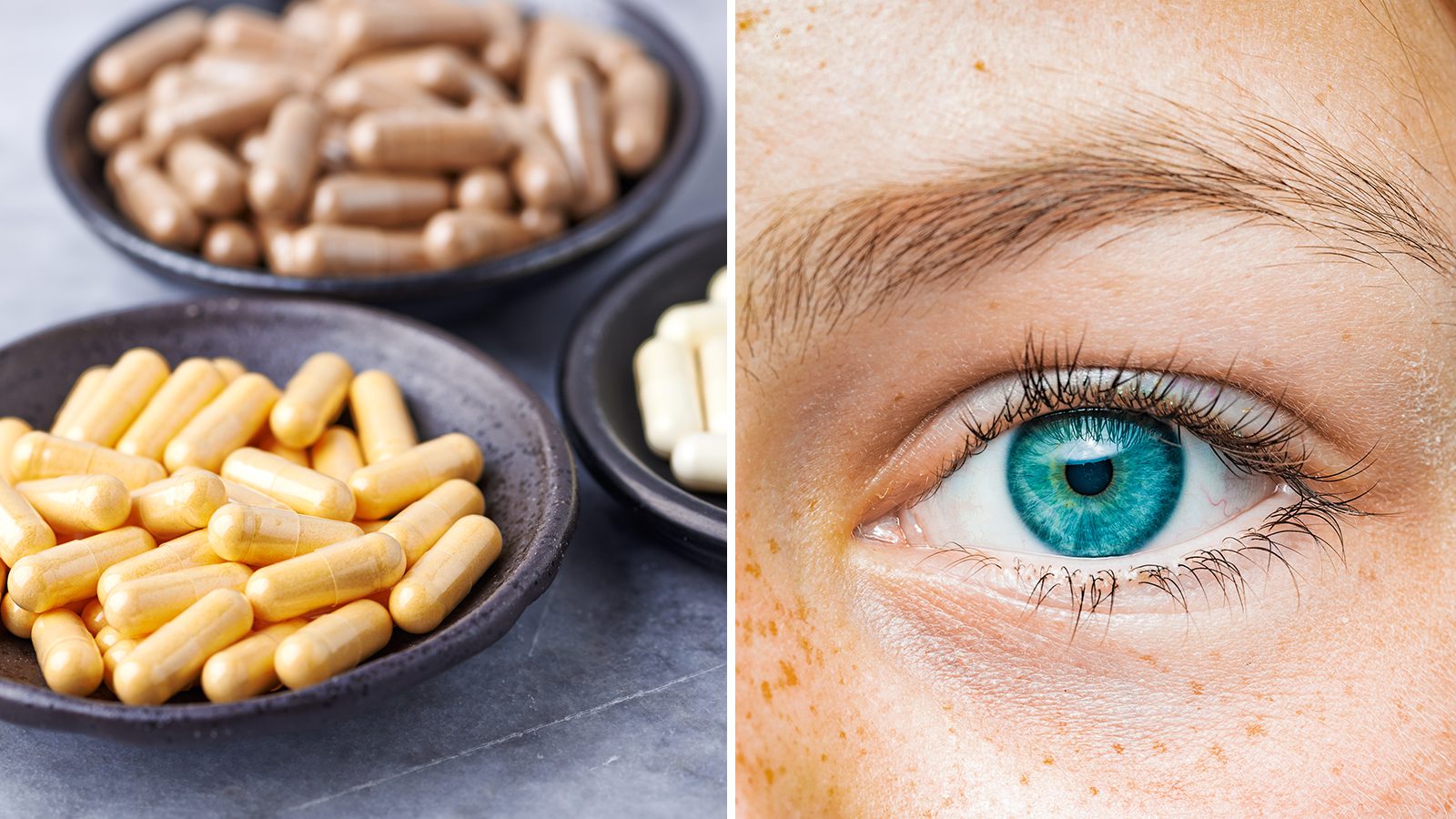Alpha-lipoic acid (ALA) is a natural antioxidant made by your body. It’s in every cell of your body that turns glucose into energy. This antioxidant goes after the free radical waste byproducts formed when your body turns food into energy. These free radicals are chemical reactions that damage your cells, so it’s harder for your body to fight off infection. Free radicals also harm your body’s tissues and organs.
Fortunately, you can get ALA from certain foods.
Health benefits of alpha-lipoic acid
Here is a list of alpha-lipoic acid benefits and how you are sure to get enough ALA every day.
1. ALA helps diabetes
Doctors say that ALA can lower blood sugar levels besides killing free radicals. It also helps those with diabetic peripheral neuropathy to find relief. Diabetic peripheral neuropathy is a condition that affects the feet and legs of people with diabetes. It can be debilitating and painful. Sometimes it’s fatal. Researchers say that ALA helps improve insulin sensitivity. But it’s not entirely understood if taking alpha-lipoic acid by mouth can help. Research has been limited to small groups.
Another diabetes-associated condition, autonomic neuropathy, affects nerves in your internal organs. People with autonomic neuropathy in their hearts found improvement when they took 800 mcg of ALA.
2. Alpha-lipoic acid can slow down the aging process
Aging happens to everyone. Sagging, wrinkles, and a lack of elasticity are normal as you age. The skin around our arms, legs, face, and trunk are most affected. Aging skin also gets dry and has an increased risk of skin diseases.
Alpha-lipoic acid benefits include slowing down this aging process. ALA has potent antioxidant abilities, which help reduce skin aging and inflammation. Furthermore, it improves the nerve function of the skin. Other alpha lipoic acid benefits for aging include the following:
- Tightening of skin
- Improve the firmness of the skin
- Reduce fine wrinkles and lines
For the best benefits, nutritionists suggest you take it with biotin and vitamin B complex.
3. Reduce glaucoma risk with ALA
As you age, you’re at risk of getting glaucoma. This eye condition causes vision loss. There are different types of glaucoma. But with all of them, the high eye pressure damages the nerve that connects your eye to your brain. Glaucoma has no symptoms other than vision loss. A rare kind of glaucoma called angle-closure glaucoma causes eye pain, nausea, and sudden blindness. Studies show that ALA is an effective antioxidant that helps protect retinal cells that affect glaucoma.
4. Alpha-lipoic acid can help protect from cancer
ALA links to anticancer therapy because of its ability to kill specific cells and inhibit cancer cell growth. One finding with patients with pancreatic cancer, an especially deadly cancer, received intravenous lipoic acid combined with a low dose of naltrexone. Although they learned they had only months to live in 2002, they were symptom-free and back at work by 2006. ALA is also effective against ovarian and gastric cancer.
5. ALA protects your brain
Alpha-lipoic acid benefits extend to your brain. Researchers believe it protects your brain and nervous tissue, reducing the progression of memory loss and other disorders. ALA neutralizes oxidative stress and improves energy production in your brain. This supports a healthy brain, increases your mental sharpness, and reduces your chances of dementia.
6. Prevent stroke
Strokes are one of the leading causes of death in the United States. It’s the leading cause of disabilities in developing countries. Evidence shows that oxidative stress is a massive component of brain damage from strokes. Because your brain is prone to consuming reactive oxygen, free radicals cause damage because of low antioxidants. Researchers believe ALA also has potential benefits in treating stroke and other brain problems where these free radicals have caused harm. Researchers hope to learn more about ALA’s promising ability to treat and restore the brain after a stroke injury.
7. Prevents cardiovascular disease
Atherosclerosis, a disease of your arteries causing the growth of plaque in the inner walls of your arteries, is caused by these:
- High blood pressure
- Smoking
- High cholesterol
- High blood pressure
- Diabetes
- Obesity
- Eating saturated fats
The common thing about each of these conditions is oxidative stress. It’s thought that oxidative stress could be the leading cause of atherosclerosis. Because ALA is a potent antioxidant, it can reduce oxidative stress and inflammation related to heart disease. ALA is a powerful antioxidant. Your body produces it, but when you take a supplement, it increases the functional capacity of the ALA.
8. Alpha-lipoic acid may assist in weight loss
Studies show that taking ALA results in modest weight loss for overweight individuals. Some results were inconsistent. But there was weight loss for those who took ALA compared to those who took a placebo. More research is needed to determine the effect of different doses and more long-term alpha-linolenic acid benefits.
9. Protects your eyes
As you age, oxidative stress can damage your vision. The health benefits of ALA extend to your eyes because it can stop oxidative damage that causes eye damage. Eating a diet high in foods with ALA before you reach an older age can prevent the degeneration of your eye tissue and vision loss. It is used to help control eye disorders such as:
- Vision loss
- Macular degeneration
- Retina damage
- Cataracts (as mentioned earlier)
- Wilson’s disease
10. Lowers inflammation
Alpha-lipoic acid fights oxidative stress and inflammation in your body. People taking ALA supplements say it reduces joint pain and muscle aches. There’s evidence that ALA binds and removes heavy metals or toxins that accumulate in your bloodstream from the water you drink, chemicals found in your environment, the air you breathe, or the foods you eat. The metals ALA can effectively remove include:
- Arsenic
- Iron
- Mercury
What foods contain ALA?
Your body makes a small amount of ALA, but you can support it by making healthy food choices. The foods that contain ALA include:
- Potatoes
- Spinach
- Organ meats (like liver, in limited quantities)
- Red meat
- Brewer’s yeast
- Flaxseed
- Beets
- Carrots
- Tomatoes
- Brussel sprouts
- Broccoli
- Green peas
What about ALA supplements?
Alpha-lipoic acid is made in small amounts by your body. It’s also in foods and supplements. Supplements can benefit people with diabetes, skin aging, heart disorders, and memory issues. It’s thought that 300 mg to 600 mg are effective and safe with side effects. There is concern that only 30% to 40% of ALA supplements are absorbed. That’s why some people suggest you take these supplements on an empty stomach, the first thing in the morning, thirty minutes before you eat or drink. Others say you should eat a small snack before taking it to prevent acid reflux. So it would be best if you learn what works best for you.
What are the side effects of alpha-lipoic acid supplements?
ALA has minimal side effects for most people, but some reported having adverse effects.
- Low blood sugar
- Nausea
- Rash-this is primarily those who used an ALA ointment or cream
- Vomiting
- Acid reflux
Warnings about taking alpha-lipoic acid
Researchers have not studied ALA to see if it’s safe for pregnant or breastfeeding women. So, it may be best to stop taking ALA supplements if you fit in either of these categories. Risk factors are rare, but because the ALA supplements cause low blood sugar, those with diabetes or low blood sugar should talk to their health care provider before taking them.
Interactions of ALA with other medications
- If you take medication for certain health conditions, you should know how ALA interacts with some medications. The medications are affected by ALA.
- Medications for diabetes. Because ALA lowers your blood sugar levels, it raises your risk of hypoglycemia or low blood sugar. If you have diabetes medication, watch your sugar levels closely.
- Chemotherapy drugs. It can interfere with some chemo drugs. Ask your oncologist before you take it.
- Thyroid medication. Levothyroxine-It may lower this drug’s effectiveness. It doesn’t seem to affect Synthroid, another thyroid medication. Be sure your endocrinologist monitors your numbers.
- Vitamin B1(Thiamine). ALA lowers the thiamine levels in your body. This is dangerous, especially if you’re an alcoholic. They are already low in this vitamin.
Final thoughts on understanding the many benefits of alpha-lipoic acid
Alpha-lipoic acid (ALA) is made in small amounts by your body. It’s a powerful antioxidant that’s in every cell of your body. The health benefits of ALA extend to your eyes, heart, weight, and brain. Its main job is to kill off free radicals that cause harm to your body’s cells. Even though your body makes some ALA, eating a diet rich in ALA is essential. Many people have experienced ALA benefits from taking supplements.
Be sure to take the correct amount and be aware of ALA drug interactions. Talking to your doctor before you take supplements might be worthwhile if you have certain health conditions. This list of alpha-lipoic acid benefits is impressive. As researchers continue to study ALA, there is a good chance you will soon hear more about its antioxidant benefits.

















 Community
Community

